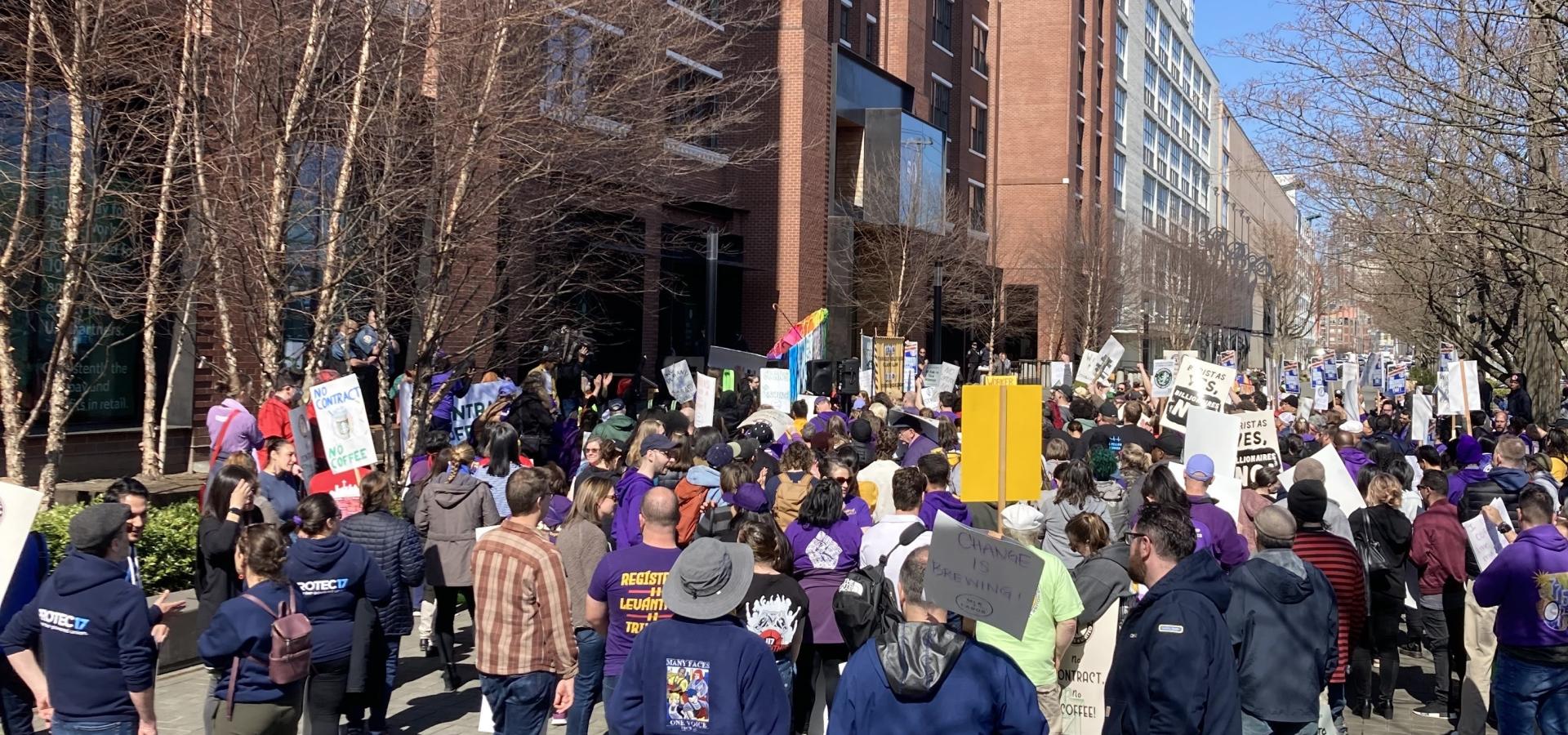Lattes and Labor: Perception and Consumption of Starbucks at UW

Many across the country, and here in Seattle, have been stunned at the number of labor violations tied to Starbucks since a wave of unionization started in Buffalo, New York in December 2021. While Starbucks is not unique in opposing unionization, its long-time contractual relationship with the University of Washington (UW) and its headquarters being located in Seattle offer opportunities for direct community engagement with Starbucks, as well as organizations that have relationships with the coffee and beverage company.
In collaboration with a coalition of student groups supporting Starbucks workers at the UW, the Harry Bridges Center for Labor Studies (HBCLS) research team developed a survey to better understand how students, staff, and faculty feel about Starbucks, how often and why they purchase Starbucks on and off campus, and how aware they are of union campaigns at Starbucks and the company’s anti-union behavior. The survey's findings and other information is included in this report, also linked below.
Survey findings included:
-
Most participants reported buying from Starbucks infrequently and reported buying from on-campus Starbucks locations more than off-campus locations
-
81% of respondents reported viewing Starbucks neutrally or negatively
-
More than 67% of participants said they would buy from a Starbucks alternative if available on campus
-
Most participants had a general understanding of the recent unionization efforts by workers, with many reporting learning about these efforts through social media
With the survey indicating that many people at UW are open to purchasing from an alternative on-campus coffee and tea provider, coupled with their knowledge of Starbucks’ unfair labor practices, it seems safe to conclude that a significant percentage of Starbucks customers at UW feel conflicted about consuming Starbucks products on campus.
The research team hopes our findings from this specific time and place – a large public university with a Starbucks contract – are helpful in understanding why organizations with allegations of labor violations can maintain high sales, especially when competition is limited. Moreover, the presence Starbucks has built within the university environment – in terms of location, connections, and sponsorships – may have created a relationship with limited oversight and accountability.
Please direct any questions regarding this report to Rachel Erstad, Bridges Center Research Coordinator, at rerstad@uw.edu.
Research by Anita Zeng (Research Assistant) and Rachel Erstad (Research Coordinator) at Harry Bridges Center for Labor Studies. The photo above was taken by Bridges Center Associate Director Andrew Hedden at the March 22nd rally at Starbucks Headquarters with Starbucks partners, local union members, and community supporters.